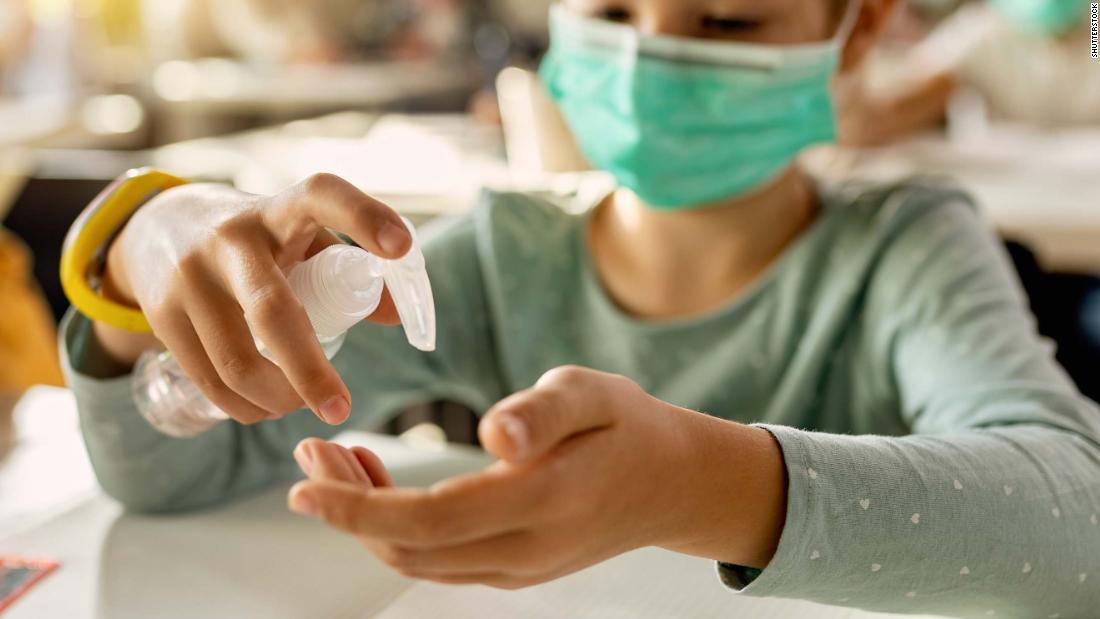
Dr. Lee Savio Beers is the president of the American Academy of Pediatrics. The views expressed belong to the author. View more opinion at CNN.
(CNN)Like so many families, ours had been looking forward to returning to school with fewer Covid-19 restrictions and more in-person opportunities for our children to learn and socialize. And then the Delta variant struck.
As a pediatrician and a parent, I am still confident that children can safely return to learning in person in the coming weeks. The stakes are high; we have seen the detrimental impacts of remote learning for the last year and a half. For children, going to school helps the process of socialization, provides a sense of belonging and offers access to nutrition and mental health resources along with other supports that are essential for children to thrive.
During the pandemic, health and academic disparities among children have worsened. We must work together to ensure that all children return to school safely. There are two things we can do right now to help make that possible: Get vaccinated and mask up. The best way to stop the spread of Covid-19 is for everyone 12 and above to get the vaccine. I encourage parents to talk to your child's pediatrician if you have any questions about the vaccine for yourself or your child; we are eager to help.
Of course, children under the age of 12 are not yet eligible to get the vaccine. To help prevent the spread of Covid-19, which could send everyone home to quarantine for weeks at a time, schools should also require everyone to wear a face mask, regardless of vaccination status. Coupled with other measures like ensuring that sick children stay home, encouraging frequent hand washing, and keeping children a few feet apart when possible, asking everyone in school to wear a mask is a critical layer of protection.
It's important for school districts to have the flexibility to work with their state and local health officials to design protocols that make sense for their community. The AAP recommends universal masking as a practical way to make sure all students and staff are as safe as possible, especially when many children are still too young to be vaccinated. Officials in middle and high schools will also be relieved of the burden of monitoring who is fully vaccinated and who isn't.
There is good evidence that masks are safe and they work. A study of elementary schools in Georgia this spring found that those that required masks for teachers and staff had 37% fewer cases of Covid-19. Studies in adults have also found that masks have reduced transmission in a variety of settings, including hair salons, homes, airplanes, hospitals and communities in multiple cities around the globe. The science is robust, and growing.
Most children are happy to pitch in and do their part, especially if they understand that they are helping others by wearing a mask. Young children are adaptable to new routines and have, in many cases, adjusted better than many adults have to mask use in school and other settings.
And I can speak from personal experience, as the mother of two active and fully vaccinated teenagers, that our entire family has easily adapted to wearing masks, including while exercising when we needed to. I know other families have as well.
I can also refute some myths around mask use in children. Masks do not harm children's mental health, and in fact can help ensure all children return safely to in-person learning, which will support mental health. Many children with special health care needs have comfortably worn masks for long periods of time before the pandemic, and even more children have started doing so throughout the past year.
Masks are not breeding grounds for bacteria; reusable masks can be washed when they get dirty, and children can start each day with a clean mask.
Masks do not cause children to absorb more carbon dioxide; CO2 molecules are small enough to pass through masks when we exhale, and studies show that masks can be safely worn even during exercise.
There is no evidence that teachers and other adults who wear face masks will negatively impact children's language development, and in situations where it's important for children to see the mouth of a teacher, clear masks are available or other accommodations can be made. It is also important to note that children will typically have lots of time with unmasked adults outside the school day.
Masking is not forever; it's for now. It's a temporary step we need to take to keep children safe from a virus that has infected more than 4 million children and adolescents since the start of the pandemic, hospitalized thousands and killed more than 350 children, according to the CDC.
Get our free weekly newsletter
Sign up for CNN Opinion's new newsletter.
Some Southern states are running out of pediatric ICU beds, and we are seeing more newborns and infants contracting Covid-19 as the Delta variant continues to spread. No death of a child is acceptable, especially when we have a safe vaccine for those 12 and older, as well as other public health measures that we know can prevent it.
Children and teens need the resources and support that in-person learning provides. Together, we can make this possible for them, by getting vaccinated and masking up.
"right" - Google News
August 15, 2021 at 03:55AM
https://ift.tt/3g31WFZ
The right way to protect our children and return to in-person learning - CNN
"right" - Google News
https://ift.tt/32Okh02
Bagikan Berita Ini














0 Response to "The right way to protect our children and return to in-person learning - CNN"
Post a Comment